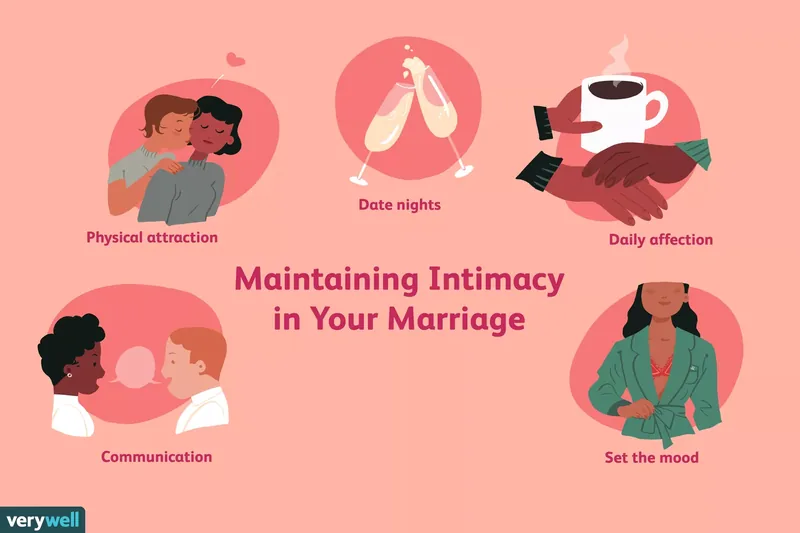Unlock Lasting Joy: 6 Proven Positive Psychology Exercises to Boost Happiness
By Linda Esposito
"The secret of happiness is to count your blessings while others are adding up their troubles." ~William Penn
In our fast-paced 2025 world, where stressors often seem to multiply, finding effective ways to boost happiness is more crucial than ever. Many people wonder how they can actively cultivate joy and resilience amidst daily challenges. The answer often lies within the principles of positive psychology, a field dedicated to understanding what makes life most worth living. It encourages us to shift our focus from what's going wrong to what's going right, empowering us to intentionally foster positive emotions and actions. This approach isn't about ignoring difficulties, but rather equipping ourselves with the mental tools to navigate them more effectively.
Positive psychology encourages us to question which thoughts and actions we can change to become happier. This intentional focus inspires us to cultivate positive emotions, nurture relationships, and commit acts of kindness. By integrating specific practices into our routines, we can significantly enhance our emotional well-being and, in turn, positively influence those around us. The following exercises are scientifically-backed strategies designed to help you proactively boost happiness in your life.
1. The Power of Three Funny Things
This simple yet profound exercise involves intentionally seeking out and documenting three funny things you experienced each day, along with an explanation of why they occurred. This could be something you were directly involved in, an amusing observation, or a spontaneous, unexpected moment of humor. The goal is to train your brain to notice the lighter side of life, fostering a more optimistic perspective. For example, perhaps your pet did something unexpectedly silly, you overheard a witty remark, or you found humor in a minor mishap like spilling coffee on yourself.
Laughter is a powerful tool for emotional regulation. Research in positive psychology suggests that engaging with humor can significantly reduce stress hormones, improve mood, and even strengthen social bonds (Harvard, 2024). When you can laugh at yourself and your circumstances, it signals a healthy detachment from perfectionism and an ability to embrace life's imperfections. Furthermore, laughter is incredibly contagious; sharing these funny moments can uplift those around you, creating a positive ripple effect. Making this a daily habit helps to recalibrate your focus, turning everyday occurrences into sources of joy and demonstrating a proven path to boost happiness through simple observation.
2. Intentional Journaling for Self-Reflection
Journaling is far more than just writing; it's a dynamic process of self-reflection that provides a snapshot of your inner world at a given moment. This exercise helps cultivate a healthy habit of introspection, allowing you to document positive changes in your thinking and actions over time. It's particularly effective in transitioning from a negative mood to a more positive one by externalizing thoughts and processing emotions. The act of writing helps organize your thoughts, identify patterns, and gain clarity on situations.
To maximize its benefits, focus on specific positive events. For instance, if you achieved a significant milestone, like earning a promotion at work this week, recount:
- How it happened:(e.g., through diligent hard work and meticulous attention to detail, double-checking all my project numbers)
- Why it happened:(e.g., I proactively took the initiative to apply for the promotion and prepared thoroughly)
- What I did right:(e.g., I sought advice from senior executives, actively listened to feedback, and implemented strategies to improve job performance)
- How I helped this happen:(e.g., I committed to professional development, dedicating evenings to reading industry publications and analyzing market trends instead of passive entertainment)
Next, address one activity or interaction that caused discomfort or dissatisfaction, and problem-solve how to address it. For example:
- I felt frustrated and snapped at my roommate when she came home late on Thursday and woke me up, disrupting my sleep.
Then, consider:
- How this is keeping me stuck:(e.g., I couldn't fall back asleep because I obsessively replayed the interaction and focused on how inconsiderate she seemed, leading to a restless night and lingering resentment.)
- What thoughts and actions I can take to get unstuck:(e.g., I can cultivate more flexibility and empathy; she is an adult and doesn't require a strict curfew. Practically, I can invest in high-quality earplugs or a white noise machine to use when she's out during the week, empowering me to protect my sleep without confrontation.)
This structured approach to journaling transforms it into a powerful tool for cognitive restructuring and problem-solving, helping to enhance well-being and actively boost happiness by fostering self-awareness and proactive solutions.
3. Envisioning Your Future Self
Whether you're striving for better health, pursuing an advanced degree, or launching a new business, the journey from aspiration to achievement can often feel long and arduous. Envisioning your desired future self is a powerful motivating factor that can help you overcome slumps and maintain momentum. This exercise taps into the psychological benefits of visualization, strengthening your commitment to long-term goals and helping you boost happiness by connecting present efforts to future rewards.
To practice this, find a quiet space, close your eyes, and vividly picture your future. Focus on specific details: how will your life be different? What tangible changes will be in place--in your environment, your routines, your relationships? Reflect deeply on how you'll feel in this future state: what emotions will dominate your days? Consider how others will respond to the new, improved you, acknowledging the positive impact of your growth. Most importantly, think about how you'll utilize the habits, skills, and talents you're cultivating now to benefit others. This external focus adds a layer of purpose, enhancing your motivation and the overall positive impact of your future self. For example, if you're learning to code, envision not just your dream job, but how you'll use those skills to mentor aspiring developers or create an application that solves a community problem. This forward-looking perspective solidifies your resolve and reinforces the value of your current efforts, making the path toward your goals feel more purposeful and attainable (Harvard, 2024).
4. Tracking Acts of Kindness
Engaging in acts of kindness, and consciously observing them, is a powerful way to cultivate positive emotions and enhance overall well-being. This exercise encourages you to keep a daily record of all the kind acts you perform, as well as those you witness. These gestures don't need to be grand; they can be as simple as leaving a thoughtful note for a colleague, offering to help a neighbor with their groceries, holding a door open for a stranger, or simply offering a genuine smile to someone you pass on the street. Even acts of digital kindness, like leaving a positive comment on someone's social media post or sharing helpful information, count.
The psychological phenomenon known as the "helper's high" demonstrates that performing altruistic acts triggers the release of endorphins, leading to feelings of warmth and contentment. By actively tracking these moments, you become more attuned to the inherent goodness in the world and your capacity to contribute to it. This practice not only reinforces your own prosocial behavior but also helps you recognize the pervasive presence of kindness, even amidst daily challenges. This shift in focus can significantly boost happiness by fostering a sense of connection, purpose, and gratitude, creating a positive feedback loop that encourages more compassionate interactions in your life and community (Harvard, 2024). It reminds us that even small actions can create a ripple effect of positivity.
5. The Transformative Gratitude Visit
This exercise is a deeply moving and impactful way to experience and share gratitude. It involves identifying someone significant in your life, excluding immediate family members, partners, or spouses, who has been exceptionally helpful or kind to you. The key is to choose someone whose positive influence might not have been fully acknowledged. For example, this could be a former teacher who inspired you, a mentor who guided your career, or a friend who supported you through a difficult time.
Once you've chosen someone, write a heartfelt letter to them. In this letter, include specific details about how they've helped you, the particular actions they took, and the lasting positive impact their kindness has had on your life. Be as descriptive and sincere as possible, articulating the depth of your appreciation. The next step, which makes this exercise uniquely powerful, is to arrange to meet with this person. During your meeting, tell them you have something important you'd like to read to them. As you read the letter aloud, observe their reaction and allow yourself to fully experience the emotions of expressing and receiving gratitude. After you finish reading, present the letter to them as a tangible gift, perhaps even suggesting a lovely gesture, though entirely optional, like framing or laminating it. This face-to-face expression of gratitude has been shown to profoundly boost happiness for both the giver and the receiver, strengthening relationships and creating a memorable, uplifting experience (Harvard, 2024).
6. Cultivating a Resilient Positive Outlook
Despite the inevitable pain and trauma that life brings, cultivating a resilient positive outlook is fundamental to navigating challenges and maintaining well-being. This isn't about ignoring difficulties or pretending everything is perfect; rather, it's about developing the inner resources to bounce back more quickly from adversity. People who actively choose positivity possess the resilience to find the good in every situation, even when circumstances are challenging. This intentional choice means looking inward for strength, trusting your thoughts, emotions, and behaviors as guides, and actively seeking constructive ways forward.
Life will always present pain and heartache, but a resilient outlook provides the conviction that there is always a way out or a path through. For instance, in 2025, amidst global uncertainties or personal anxieties, it's easy to fall into a spiral of negative thoughts. Last week, after dropping my son off for school, I found myself unexpectedly feeling sad and scared. What if something bad happens and I never see him again? I recognized these thoughts as futile and anxiety-driven, yet they were hard to shake as I watched his disappearing frame recede amongst the sea of middle school students. I knew I needed an intentional action to shift my perspective.
I then breathed deeply, closed my eyes, and reminded myself that my feelings are not facts. I consciously acknowledged that I could get myself on the other side of this anxiety with deliberate effort. I opened my eyes and looked around, intentionally savoring the vibrant green of the trees, the crisp fresh air, the warmth of the morning sunlight, and the cheerful giggles of teens eagerly running toward the crossing guard at the edge of the street. I focused on the simple, accessible beauty around me, practicing mindfulness in the moment. It dawned on me then: the profound difference between those who complain and those who do not is often a conscious, utter appreciation and gratitude for what you have, right here and right now. This practice of cognitive reframing and mindful appreciation is a powerful way to boost happiness and build lasting resilience, regardless of external circumstances.
Conclusion
Embarking on a journey with positive psychology can profoundly transform your approach to life, helping you to actively boost happiness and build lasting resilience. The exercises outlined--from finding humor in daily life and engaging in intentional journaling to envisioning your future self, performing acts of kindness, expressing gratitude, and cultivating a positive outlook--are more than just suggestions; they are proven strategies for enhancing emotional well-being. By integrating these practices into your daily routine, you empower yourself to shift your focus, strengthen your relationships, and develop a deeper appreciation for the present moment. Remember, cultivating happiness is an ongoing process, not a destination. Consistent effort in these areas will not only enrich your own life but also create a positive ripple effect on those around you, fostering a more joyful and fulfilling existence in 2025 and beyond.











